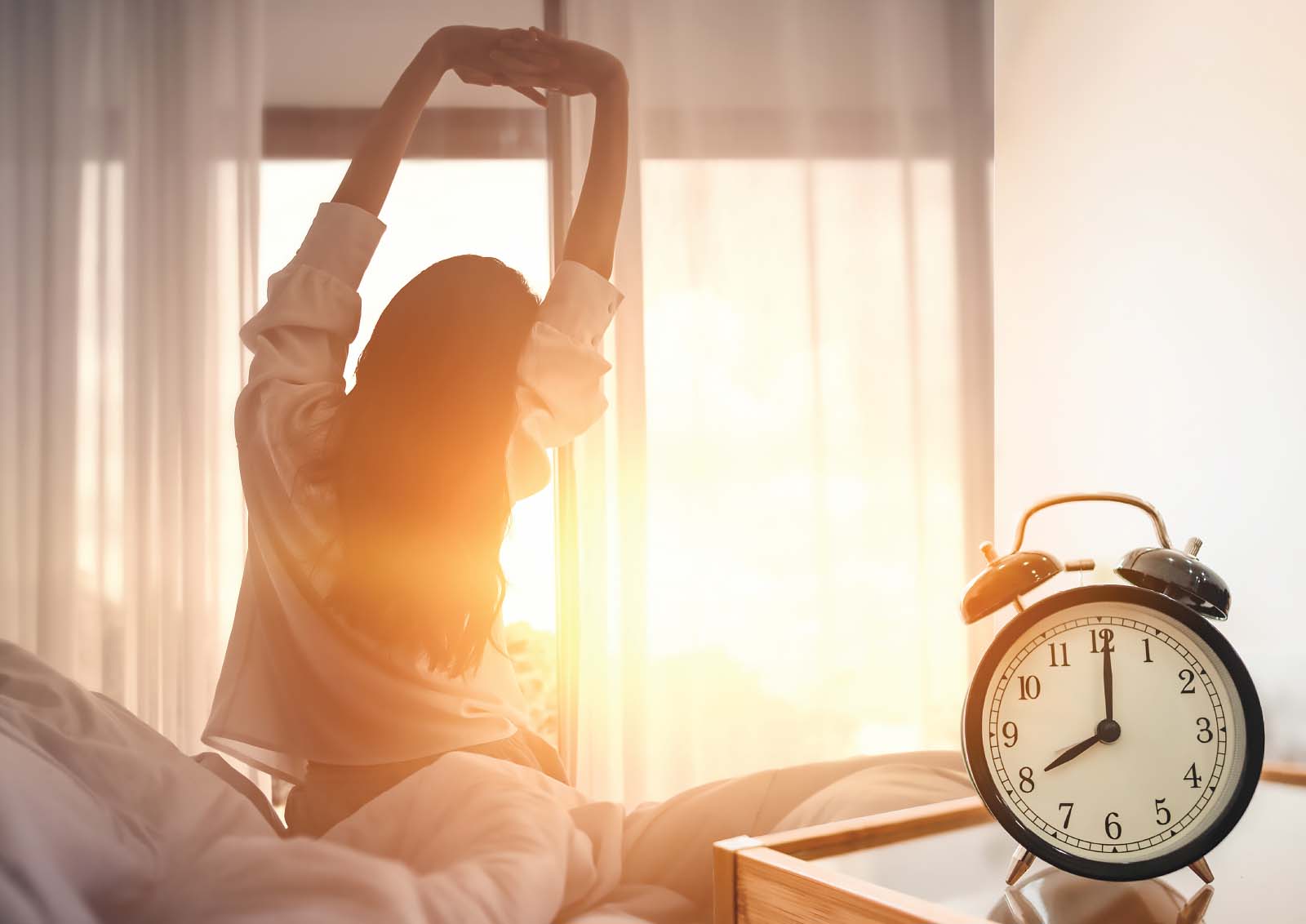Catching Zzzzs benefits your brain and body.
Sleep is a fundamental part of life. And while it’s not entirely understood by scientists, we know it has a huge effect on how we function during the day. Dream up ways to make it a priority, because powering down for the night recharges your health.
When you’re getting enough sleep, you benefit in so many ways:
Unleash your brain power
Getting a good night’s rest helps your brain work at maximum capacity. That raises your productivity, your ability to concentrate and your emotional and social intelligence. If you’re well rested, you’ll be more empathetic. You won’t be yawning as your friend bemoans a breakup. And you’ll find the right words to encourage an overworked colleague.
Bonus: Getting enough sleep has the added perks of sharpening your memory and problem-solving skills, no matter your age.

Revitalize your body
Hitting the gym? From lifting weights to running faster, sleep means your muscles can fully rest and recover so you won’t drag your feet at the gym.
With enough sleep, you’ll lower your risk of heart disease, heart attack, stroke, depression and inflammation. You even enhance your immune system, so you’ll be in top form for fighting off viruses and bacteria.
What are the effects of not getting enough sleep?
Sleep deficiency doesn’t target one age group — it happens to children and adults alike. Stress, anxiety, narcolepsy and sleep apnea can all cause sleep deprivation. And that can lead to other problems. Some of the less-obvious effects of poor sleep? Obesity, an increased sense of pain and a weaker response to vaccines.
Chronic sleep deprivation may also increase your risk of cognitive decline and dementia. It can also have a direct impact on performance and behavior at school in children.
So, how can you sleep better?
Hack your sleep and wake up refreshed with a few tweaks:
Set a routine. Get up and go to bed at the same time daily. Even on weekends.
Get up and at ’em. While you’re awake, add movement to your day. Spending time outside and exercising are great ways to get a better night’s rest. Both activities help lower stress levels, which directly impact your quality of sleep.
Don’t sleep too much. If you’ve had enough sleep, don’t sleep more — because oversleeping isn’t good for you, either. It can raise your risk for diabetes, heart disease and stroke. Stick to that sleep schedule mentioned above.
Turn off your phone. Put the phone away at least an hour before bed. Exposure to blue light can shorten your slumber.
Have a medical issue interfering with your sleep? Talk to your doctor. They’ll help you find the best treatment to improve your Zzzs.
Next steps:
Are sleep disorders keeping your child — and family — up at night?
Skip the nightcap. Here’s how alcohol affects your sleep.
The wellness you need, in a style you’ll love — delivered.
Sign up to have PA Health sent to your mailbox or inbox 4 times a year, for free.
How much sleep do you need?
The right amount of sleep depends on age. The CDC recommends, in one 24-hour period:
0 – 3 months: 16–18 hours (your baby might sleep more or less)*
4 – 12 months: 12–16 hours (including naps)*
1 – 2: 11–14 hours (including naps)
3 – 5: 10–13 hours (including naps)
6 – 12: 9–12 hours
13 – 18: 8–10 hours
18 – 60: 7 or more hours
61 – 64: 7–9 hours
65+: 7–8 hours
*Always put your infant on their back to sleep.
